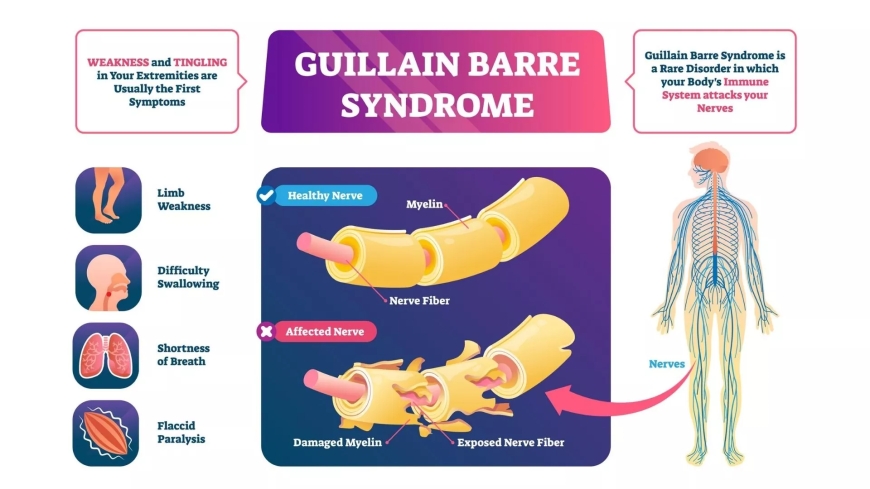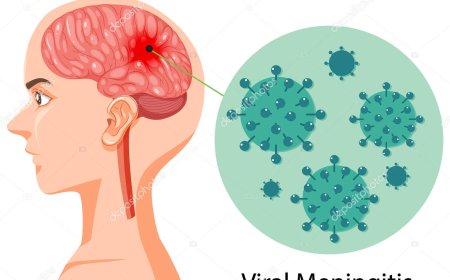Guillain-Barre Syndrome

Introduction :
In this article, we'll explore Guillain-Barre Syndrome (GBS), a rare but serious condition that can affect people in India. We'll discuss what Guillain-Barre Syndrome is, its classification, causes, risk factors, types, diagnostic tests, treatments, complications, and prevention techniques, all explained in simple language for our 10-year-old readers.
What Is Guillain-Barre Syndrome? :
Guillain-Barre Syndrome (GBS) is like a puzzle that confuses our body's defenses. It happens when our immune system mistakenly attacks the nerves, causing weakness and sometimes paralysis.
How Is Guillain-Barre Syndrome Classified? :
Guillain-Barre Syndrome is classified as an autoimmune disorder, which means our immune system, usually a superhero that fights bad germs, mistakenly starts attacking our nerves.
Sign and Symptoms:
If someone has Guillain-Barre Syndrome, they might experience:
- Weakness: Feeling like their arms or legs are very weak and hard to move.
- Tingling Sensations: Having strange feelings like pins and needles in their hands and feet.
- Trouble Walking: Finding it difficult to walk or balance.
Causes and Triggers:
The exact cause of Guillain-Barre Syndrome is not fully understood, but it can sometimes happen after someone has had an infection, like a cold or stomach bug.
Risk Factors with Examples:
Some things can make people more likely to get Guillain-Barre Syndrome, like:
- Recent Infections: If someone had a bad cold or tummy ache before, they might be at a higher risk.
- Certain Medicines: In some cases, certain medicines can trigger Guillain-Barre Syndrome.
Types of Guillain-Barre Syndrome with Detailing for Each Type:
There is one main type of Guillain-Barre Syndrome, but it can affect different nerves in our body. This includes the motor nerves that control our muscles or the sensory nerves that help us feel things.
Diagnostic Tests and Their Use:
Doctors may use a few different tests to diagnose Guillain-Barre Syndrome, like nerve tests or spinal taps. These tests help the doctor understand what's happening in our body.
Treatments:
The good news is, most people with Guillain-Barre Syndrome can get better with time. Some may need to stay in the hospital for treatment, where they will be watched closely by doctors and nurses.
Complications of Guillain-Barre Syndrome:
In rare cases, Guillain-Barre Syndrome can cause severe problems, like trouble breathing or moving some parts of the body. But with the right care, most people recover and get back to their regular activities.
Prevention Techniques:
There is no surefire way to prevent Guillain-Barre Syndrome, but we can stay healthy by washing our hands often, eating healthy foods, and getting enough rest. If we ever feel strange symptoms, it's important to tell our parents or guardians, so they can take us to the doctor for a check-up.
Remember, our bodies are resilient and capable of healing with the right care and support, just like the diverse and dynamic people of India!
What's Your Reaction?
 Like
0
Like
0
 Dislike
0
Dislike
0
 Love
0
Love
0
 Funny
0
Funny
0
 Angry
0
Angry
0
 Sad
0
Sad
0
 Wow
0
Wow
0








































































